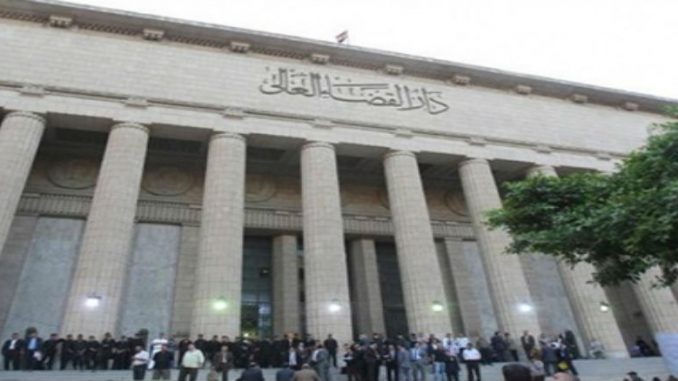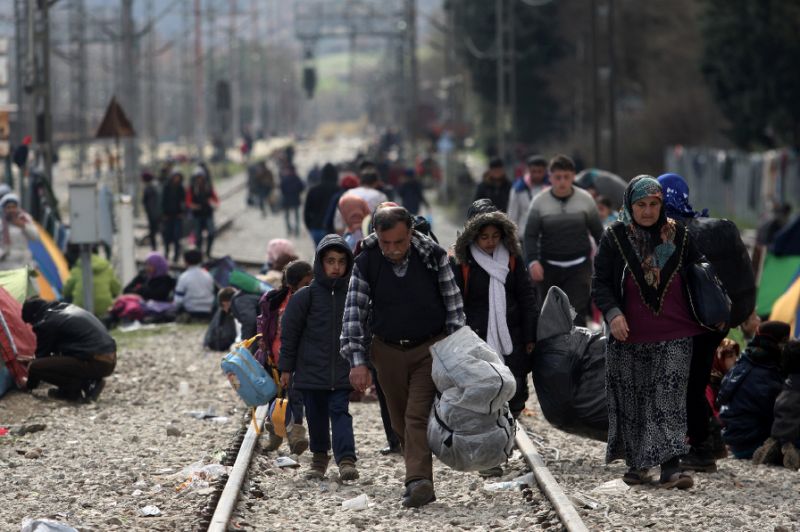
Egyptian authorities have executed 32 people since the military overthrew the first democratically elected President Mohamed Morsi in July 2013.
According to the New Khaleej, Egyptian authorities have executed 32 people in nine cases since the coup d’état while 64 people are awaiting the death penalty in 13 other cases.
There is no precise count of the number of death sentences pending appeals in Egypt, however, human rights organizations say they amount to hundreds.
Since 2013, Egyptian courts have sentenced hundreds to death, with most of the sentences appealed, while few were carried out.
While Cairo denies having political detainees in its prisons, human rights organizations have estimated the number of detainees to be tens of thousands. In September 2016, the Cairo-based Arabic Network for Human Rights Information said that the number of political detainees in Egypt has exceeded 60,000 individuals.
More than five years after Egyptian security forces violently broke up a Muslim Brotherhood sit-in at Cairo’s Rabaa Square, an Egyptian court has finally ruled on a case stemming from the deaths of over 800 people in the incident, in what Human Right Watch (HRW)concluded, likely amounted to crimes against humanity.”
Those on trial were not members of the police and army – as human rights groups have long called for – but former protesters.
On 8 September, the court handed down death sentences to 75 of the defendants, for crimes including the murder of police officers, incitement to violence, and “pressuring the authorities” to reverse the military’s seizure of power.
Mass trials leading to dozens of death sentences have been a periodic feature of Egyptian justice since the military coup in 2013. They provide a focal point for international criticism: Amnesty International described the trial as “a grotesque parody of justice” and the recently appointed UN high commissioner for human rights, Michelle Bachelet, said the sentences “a gross and irreversible miscarriage of justice” if carried out.
Certainly, the trial, in which there were 739 defendants, fell short of international standards of due process. At the same time, there are reasons to expect that most of the death sentences will not be carried out.
Egyptian courts have recommended death sentences for more than 100 people after a mass trial on no fewer than four occasions since 2013. But most of these sentences have been overturned on appeal or otherwise commuted.
Judges use mass death sentences to signal their commitment to the security of the state and their opposition to the Muslim Brotherhood, whose members have often been the defendants in the cases.
The most recent ruling handed down death sentences to several of the organization’s leaders, including senior politicians Essam el-Erian and Mohammed El-Beltagy. This is a kind of judicial theatre, with higher courts frequently reducing death sentences to lengthy prison terms.
There has been an increase in executions in Egypt during the last few years. According to estimates from
Amnesty International and the Egyptian Initiative for Personal Rights, the country executed 15 people in 2014, 22 in 2015, 44 in 2016, and up to 49 in 2017.
In December 2017, a case concerning the murder of nine soldiers in an attack on a Sinai military checkpoint resulted in the execution of 15 people. This trend shows that the threat of mass executions is real – even if it is, of course, only one element of a pervasive system of repression.
“Tens of thousands of people remain in prison for political offenses, while the authorities’ use of torture and enforced disappearances have been extensively documented,” as stated in a report by the European Council of Foreign Affairs titled, Egypt’s Judicial Theatre of Injustice.
In July 2018, as the Rabaa case neared its conclusion, the Egyptian legislature approved a bill granting immunity to senior military officers for any crimes they committed between 2013 and 2016.
Abdel Fattah al-Sisi has signed into effect a law that allows the government to shut down websites deemed a threat to national security, as the regime tightens its grip on all channels of expression.
The mass trials and parliament’s enthusiasm for the crackdown show the extent to which the various arms of the Egyptian state have come together since the 2011 revolution. The Egyptian judiciary was prepared to occasionally challenge President Hosni Mubarak in the 2000s, but since then it has fallen in line with the rest of the emerging security state.
According to the report, “An apparent lack of internal opposition to al-Sisi and a sense that outside pressure will not influence his crackdown on domestic critics have helped smooth the way for the European Union and its member states to normalize relations with Egypt.”
European governments increasingly look to Egypt as a partner on security and, above all, migration issues. At their recent Salzburg summit, EU leaders endorsed further talks with Egypt to reach a deal on curbing illegal migration in exchange for stepped-up economic assistance.
Domestic political pressure is likely to preclude any further European attempts to influence Egypt’s political direction. Yet Europeans might at least be able to discourage any further escalation in the use of executions, long a priority of the EU’s human rights policy.



